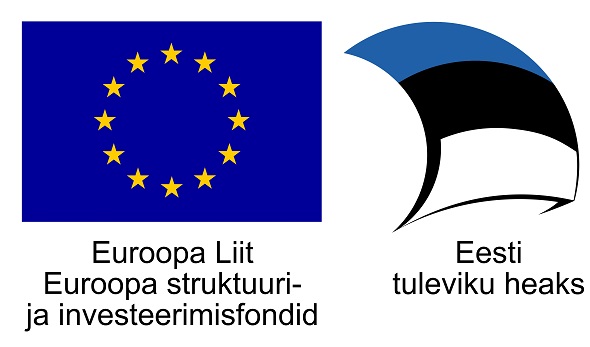Cross Innovation: Companies require new approaches
Last week, Project Cross Innovation, which unites 11 cities, summarised the work that has been done during the last three years. Although the preparedness of the cities to utilise cross innovation (innovation based on cooperation between creative fields and other sectors) greatly depends on politicians and enterprises, and their readiness to accept something new, it was recognised that results were achieved together, which would not have been possible when working alone.
The project focused on four sub-themes: smart incentives, culture-based innovation, brokerage and spatial cross-collaboration.
“We work with, and not only for, people,” said project manager Dr. Steve Harding at the project’s final conference. Within the framework of the project, companies from all the participating countries were brought together in order to establish contacts and a web-based contacts database for SMEs. A plan was created for every city for how to promote cross innovation at the local level and to map all the possible points of contact, where the creative sector has or can contribute to the birth of innovation. A tool for the better planning of cross innovation was completed for policymakers, and the cities established contacts with brokers, who can help to facilitate the bringing together of various sectors. “Cross innovation works and there is demand for it. Companies are ready to use new approaches, but require the necessary brokers – people, events and places,” Harding said summarising the project.
At the conference, the city representatives shared their good, and not so good, experiences related to cooperation between the creative and other sectors. Berlin introduced the crowdfunding platform (see www.crowdfunding-berlin.com), which has the goal of developing crowdfunding for the creative economy and ICT, but also for the field of creative education. Amsterdam introduced its own success story, whereby Amsterdam was chosen to be a finalist in the pan-European Mayors Challenge 2013–2014. Amsterdam’s success was based on the development of Play2Work, a platform for matching job-seeking young people and employers, and which enables young people to use playful solutions to better understand their skills and competences.
Vilnius, for instance, will establish a technology and art park in a former hospital. An area of 8,000 square metres is involved, which will be developed as a cooperative project that includes the city’s enterprise support agencies, the creative economy and ICT firms, as well as Lithuania’s largest telecommunications company. “Lithuania is a hot spot for the Japanese gaming industry,” the Vilnius representative said and added that several international visual culture conferences have already taken place.
The constant lack of financing sources was considered to be the most difficult problem and opportunities were weighed for making better use of the private sector, universities and investors. “Investors see a faster return of money in tourism than in cooperation with the creative sector,” the representative from Lisbon pointed out.
The Stockholm representative spoke about two types of brokering activities. The first is at the policy-making level, where attempts are made to develop platforms to bring together various agencies, in order to reduce “silo-type” policies. The second involves bringing together the creative economy and other sectors, for which an open platform has been developed in cooperation with four universities. It was stated that when developing interdisciplinarity, one is often faced the problem that it is unclear who should carry the initiative forward, i.e. there is no one phone number to call. The Birmingham representative also mentioned the problem of “the lack of a carrier” and stated that bringing the various sectors together continues to be challenging. Warsaw pointed out the problem that the cities themselves are not the best operators of creative space, and that good managers need to be found for this. Tallinn’s representative, Mihkel Salm from the Tallinn Creative Hub, pointed out the problems related to the clash of organisational cultures and ways of thinking, which is the main obstacle to the development of cross-sector cooperation. He mentioned that the main benefit gained from Project Cross Innovation was the practical information acquired from sharing the cities’ various experiences, which can be implemented in one’s own city for the development of activities-initiatives.
Estonia and Tallinn as an initiator of cross innovation, from whom something could be learned, was mentioned repeatedly in the summarising remarks at the conference, an examples were mentioned related to our TeamLab, which has been operating for some time, our innovation voucher, and brokerage initiatives.
Although this project is over, the second day of the conference focused on generating follow-up ideas, in order to find the best possible common theme for the continued development of cooperation and innovation.
The goal of Project Cross Innovation was to create a suitable environment in the target cities for the development of creative economies, which would create fertile ground for faster economic development. Besides Tallinn, the project included Birmingham, Amsterdam, Rome, Berlin, Warsaw, Vilnius, Stockholm, Linz, Lisbon and Pilsen.
The participants from Tallinn at the final conference of Project Cross Innovation included Tiiu Allikmäe from Creative Estonia, Mihkel Salm form the Tallinn Creative Hub and Külliki Tafel-Viia from the Institute of Future Studies at Tallinn University.
See more: http://www.cross-innovation.eu/
Project Cross-Innovation is funded by Interreg IVC programme.





